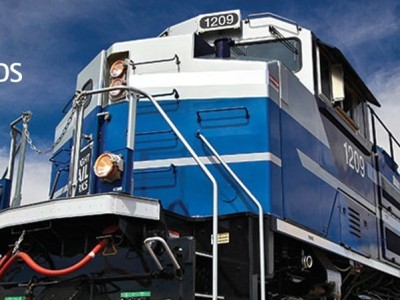The harmful effects of large package price increases on businesses, consumers and the US Postal Service
Sep 30, 2020A new analysis prepared by economists Debra Aron, Ph.D. and Justin Lenzo, Ph.D., with Charles River Associates quantifies the damaging effects of recent proposals to significantly increase prices on Postal Service package delivery services on businesses, consumers, and the Postal Service. The analysis demonstrates that these proposals would force the Postal Service to exit its profitable package delivery business, depriving the Postal Service of tens of billions in profits and revenues while harming businesses and consumers who would face higher prices and fewer choices.
Key Findings in the Report:
● Implementing the proposed price increases would force the Postal Service to exit the package delivery business and threaten the financial viability of the U.S. postal system.
○ At a 50% price increase, the Postal Service is estimated to lose 84% of its package volume.
○ At increases of 100%, 200%, or 300%, the Postal Service would lose all of its package volume.
● The estimated package volume losses would cost the Postal Service over $100 billion in revenue and up to $38 billion in contribution (profit) over the next 5 years.
● Under the reasonable assumption that higher prices at the Postal Service would lead to competitors raising their own prices, the analysis estimates that consumers would pay between $7.86 and $16.95 more per package delivered to them.
● Package price increases would result in small businesses facing reduced sales and reduced profits of $27 billion to $49 billion over five years. Many smaller retailers would be forced to close entirely.
● The analysis estimates that consumers would pay between $473 billion and $865 billion more for delivery services over the next five years. This amounts to an income redistribution from captive consumers to large private express delivery companies.
“Package rate increases by as much as 50% would devastate the ability of the postal service to offer competitive package delivery services, which are a critical lifeline for American small businesses and consumers, particularly those in rural areas,” said Package Coalition Chairman John McHugh. “This paper demonstrates why these radical proposals would be harmful to small and midsize businesses, consumers and the Postal Service. Now more than ever, our economy depends on the continued access to the affordable and reliable services of the United States Postal Service.”
In Summary:
"There is only one constituency that would benefit from an increase in Postal Service prices for package delivery of the magnitudes proposed: the private carrier competitors to the Postal Service and their shareholders. The President’s proposed price increases, or even above market increases at significantly lower levels, would divert most or all of the entire package delivery business from the Postal Service to its competitors, who would be able to substantially increase their own prices and still retain the entire market,” wrote economists Debra Aron, Ph.D., and Justin Lenzo, Ph.D., with Charles River Associates. "Businesses of all sizes engaged in e-commerce would suffer the consequences of higher package delivery prices. Those consequences include reduced volume of sales of e-commerce products and consequently lower profits to e-commerce businesses. Consumers, in turn, would pay higher prices for e-commerce products as the cost of higher shipping costs are passed on by businesses."
- Raising package prices would force the Postal Service to exit its profitable package delivery business, depriving the Postal Service of tens of billions of dollars in revenue.
- Imposing a package tax would harm businesses and consumers who would face higher prices and fewer choices. A package tax would act as a drag on ecommerce growth, costing small businesses tens of billions in lost sales and profits.
- Consumers would be forced to pay hundreds of billions of dollars to private express delivery companies for the same or diminished package delivery services they enjoy today from the Postal Service.
- The only beneficiaries of such a policy would be the private express delivery companies that directly compete against the Postal Service. As cited in the paper, independent investment bank analyses confirm that private carriers could generate billions in windfall profits.
Similar Stories

AAR Reports Rail Traffic for the week ending December 28, 2024
View Article
Women In Trucking Call for Nominations: 2025 Distinguished Woman in Logistics Award
View Article
Realterm expands Minnesota presence with acquisition of an industrial outdoor storage fleet maintenance facility in Minneapolis
View Article
Avison Young facilitates multi-parcel land sale near Northeast Georgia Inland Port for two new industrial buildings
View Article
Women In Trucking Association announces its January 2025 Member of the Month
View ArticleFreightWise and Estes team up to save shippers money on LTL freight
Transportation technology and services provider FreightWise will now offer highly competitive Less Than Truckload (LTL) pricing with Estes. Starting immediately, these rates will be available to FreightWise and Kuebix transportation…
View ArticleGet the most up-to-date trending news!
SubscribeIndustry updates and weekly newsletter direct to your inbox!




